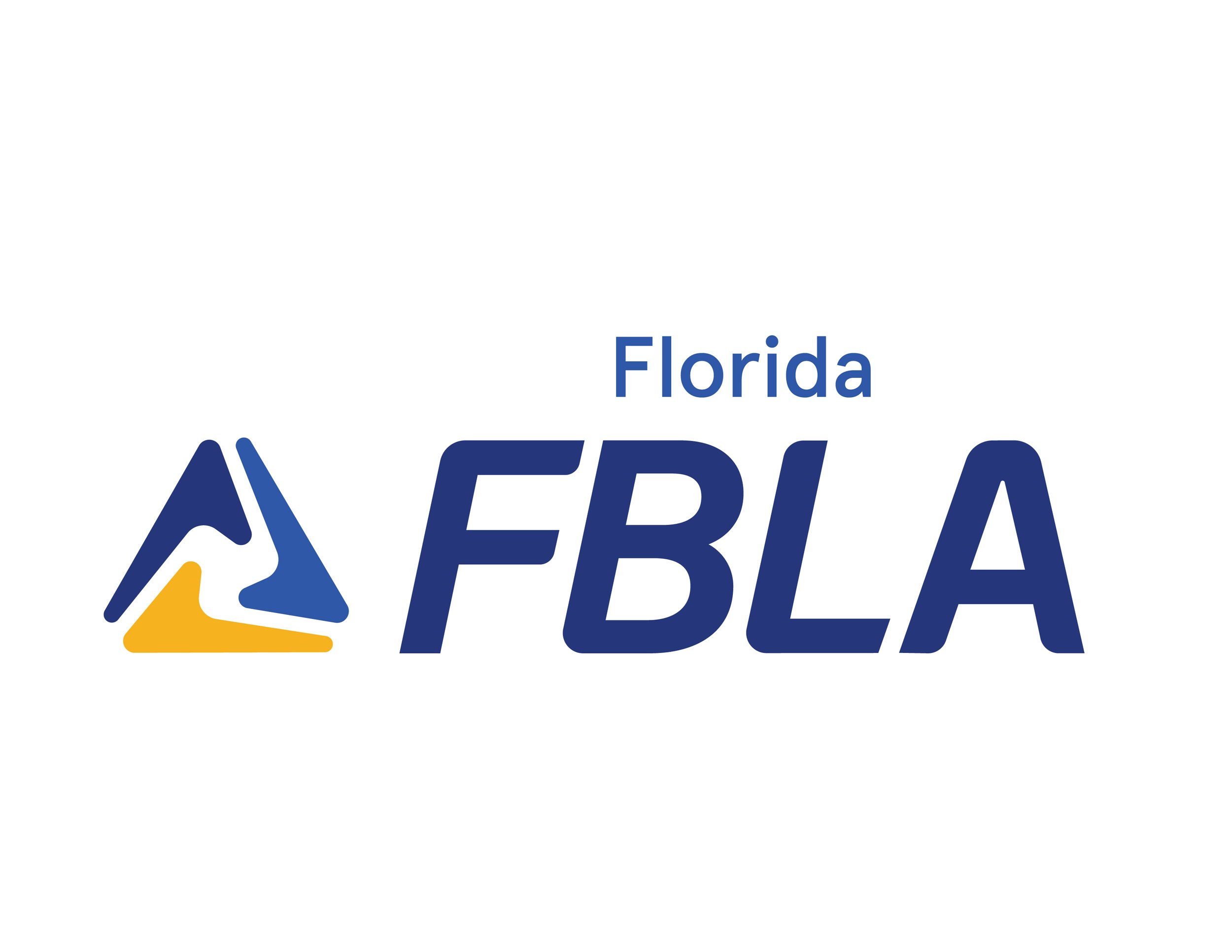- Who is Florida FBLA Collegiate?
- Collegiate SLC Winners
- Adopt-a-Chapter
- Bylaws
- Competitive Event Guidelines
- Competitive Event Rating Sheets
- Competitive Event Regulations
- Competitive Event Topics
- Dues
- Join Florida FBLA
- March of Dimes
- Membership Awards
- Collegiate State Officers
- Scholarship
- Standards of Mailability
BUSINESS DECISION MAKING
In addition to learning and applying business decision-making skills, team participants develop speaking ability and poise through oral presentations.
The one-hour objective test may include questions on business plans, ethics and social responsibility, financial management, government regulations, human resource management, legal issues, marketing management, principles of business ownership and management, and taxation. Each team member will take the test individually and the scores will be averaged together.
The five individuals or teams with the highest test score will be selected to present the decision-making case study. The interactive case study will consist of a problem encountered by management in one or more of the following areas: business planning, organizational design, economic environment, short-term and long-term planning, human relations, financial management, or marketing management. All the questions raised in the case must be addressed during the oral presentation.
ELIGIBILITY
This is an individual or team event. In the case of a team, it must be composed of two to three (2-3) members. Members may compete in this event more than once if they have not previously placed in the top ten of the event at the National Leadership Conference (NLC). If a member places in the top ten of an event at the NLC, they are no longer eligible to compete in that event.
Participants must have paid state and national dues postmarked by February 15 of the current school year.
State Each charter may enter one individual or one team of two or three participants.
National See national guidelines: www.fbla-pbl.org.
REGULATIONS
State When it has been determined that a student will represent the charter at state competition, the appropriate entry form must be sent to the state adviser received by the date specified in the SLC registration packet.
National See national guidelines: www.fbla-pbl.org.
• Participants must be selected in accordance with the regulations of the state chapter and the national association.
• Participants failing to report on time may be disqualified.
• Participants must furnish their own No. 2 pencils and erasers. Nongraphing calculators will be provided. No electronic devices may be brought to the event. No reference materials or other items are to be brought to the event.
• Participants must adhere to the dress code established by the Board of Directors or they will not be permitted to participate in the competitive event.
• A team failing to report on time for the meeting of Business Decision Making teams prior to the performance phase of this event may be disqualified.
• If for any reason, a member(s) fails to take the objective test and/or fails to show for the performance portion of this event, the team will be disqualified.
CASE STUDY PROBLEM
• The five individuals or teams with the highest test score will be scheduled for a performance. The order of performance will be drawn at random by an impartial person in the event office.
• Finalists will receive the case study the evening prior to the final round of competition. Participants can research the case during the period from receiving the case until presentation time.
• Student members, not advisers, must conduct the research and prepare the presentation.
• Facts and working data must be cited and be secured from quality sources (peer review docs, legal docs, experts in the field, etc.)
• Teams will be permitted to bring prepared notes.
• Presentation materials (i.e., laptops/devices, posters, flip charts, etc.) are allowed. Teams must provide all materials to be utilized; however, no items may be left with the judges.
• Five minutes will be allowed to set up equipment or presentation items. When five minutes have elapsed, the time will automatically start the seven-minute performance clock.
• The team has seven (7) minutes to interact with a panel of judges and present the solution to the case. The judges will play the role of the second party in the presentation and refer to the case for specifics.
• One member should introduce the team and provide a case summary. All team members are expected to actively participate in the performance.
• A timekeeper will stand at six (6) minutes and again at seven (7) minutes.
JUDGING
The objective test will be machine graded. In the event of a tie, the teams’ performance on the final ten questions of the exam will be evaluated. After that, if necessary, the order in which the tests were received will be used.
The performance portion of this event will be evaluated by a panel of judges. All decisions of the judges are final. In the case of a tie after the performance, the objective test score will be added to determine the final rank.
AWARDS
State State awards for the top five places are presented at the State Leadership Conference.
National The number of awards presented at the National Leadership Conference is determined by judges and/or number of entries. The maximum number will be ten.
